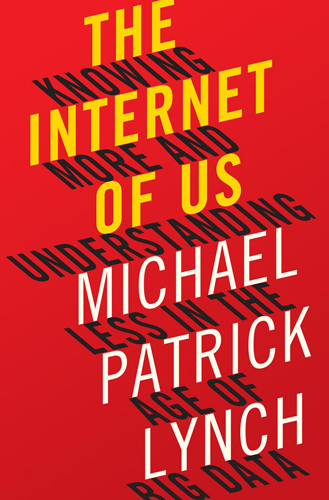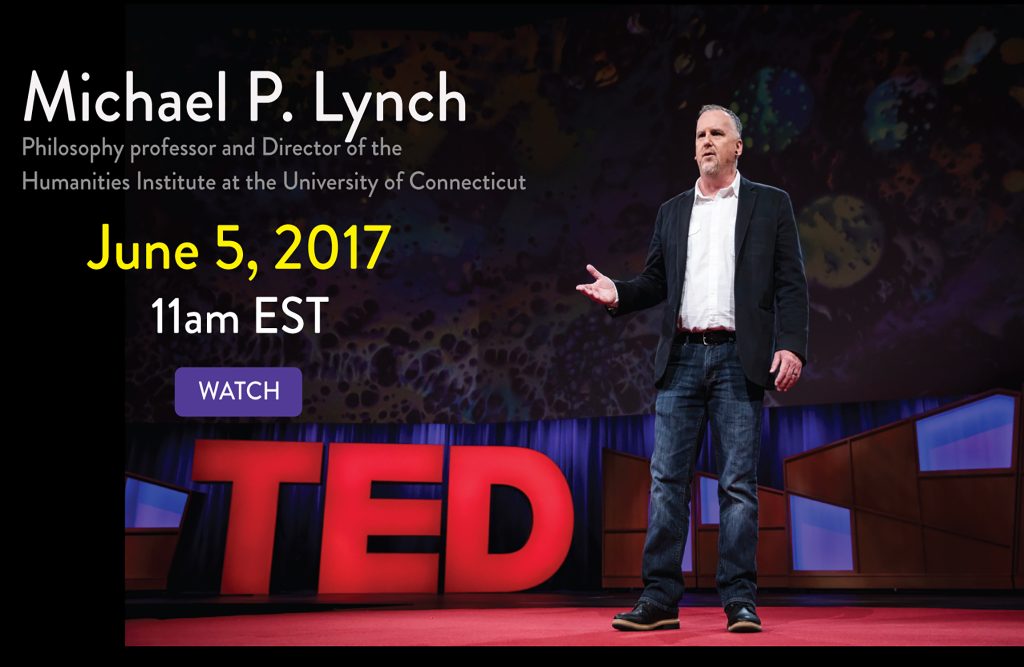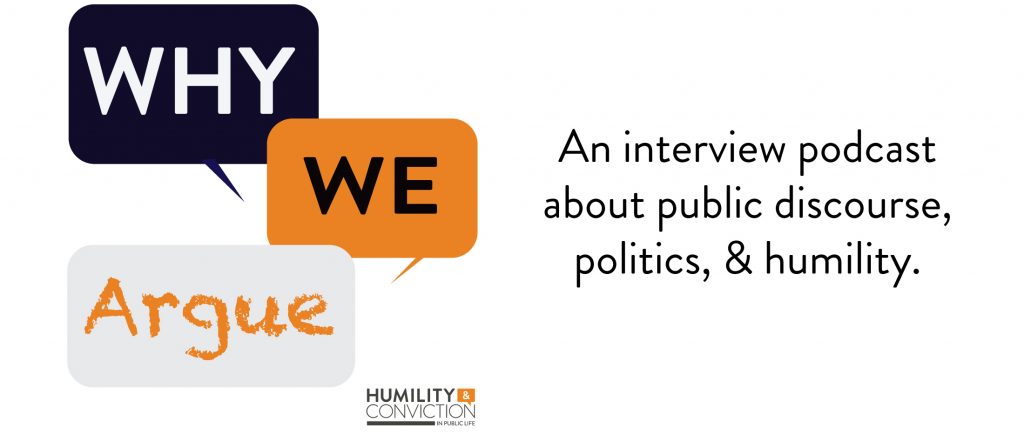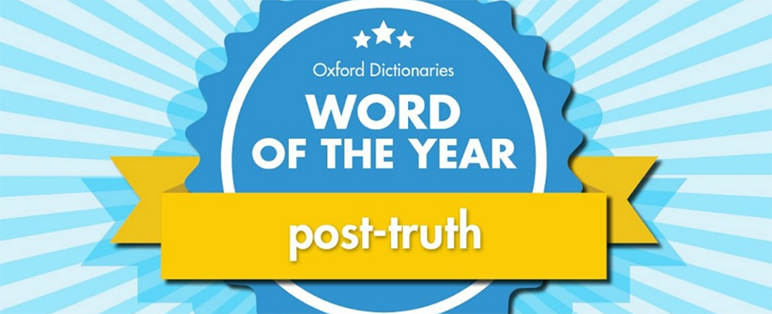Michael Patrick Lynch is a writer and professor of philosophy at the University of Connecticut. He is the director of the Humanities Institute and executive director of the New England Humanities Consortium. His work concerns truth, democracy, public discourse and the ethics of technology.
Lynch is the author or editor of seven books, including The Internet of Us: Knowing More and Understanding Less in the Age of Big Data, In Praise of Reason: Why Rationality Matters for Democracy, Truth as One and Many and the New York Times Sunday Book Review Editor’s pick, True to Life.
The recipient of the Medal for Research Excellence from the University of Connecticut’s College of Liberal Arts and Sciences, he is the Principal Investigator for Humility & Conviction in Public Life, a $7 million project aimed at understanding and encouraging meaningful public discourse funded by the John Templeton Foundation and the University of Connecticut. A frequent contributor to the New York Times “The Stone” weblog, Lynch’s work has been profiled in The New Yorker, The Washington Post and Wired (among others). He speaks regularly to both academic and non-academic audiences, and has appeared at such venues as TED, The Nantucket Project, Chautauqua, and South by Southwest.

September 24, 2019 – Know It All Society Innovation & Leadership Event; Portsmouth, NH
September 27, 2019 – NOMOS Truth and Evidence Conference; Princeton, NJ
October 9 & 11, 2019 – Weber State University, Ogden, UT
October 17, 2019 – Network for Responsible Public Policy; NJ
October 31, 2019 – Public Lecture on "Fake News and the Politics of Truth", LeMoyne College, Syracuse, NY
November, 2, 2019 – Binghamton Graduate Student Philosophy Conference; Binghamton, NY
November 13, & 17, 2019 – Conference on Democracy and Technology; Santiago, Chile
November 21, 2019 – Public World Philosophy Day Lecture, North Carolina State University; Raleigh NC
March 27, 2020 - Lecture, Georgia State University; Atlanta, GA
April 3, 2020 – Keynote for the Annual SJP Workshop on the Ethics of Big Data, The University of Memphis; Memphis, TN
With far-reaching implications, this urgent treatise promises to revolutionize our understanding of what it means to be human in the digital age.
We used to say "seeing is believing"; now googling is believing. With 24/7 access to nearly all of the world's information at our fingertips, we no longer trek to the library or the encyclopedia shelf in search of answers. We just open our browsers, type in a few keywords and wait for the information to come to us. Indeed, the Internet has revolutionized the way we learn and know, as well as how we interact with each other. And yet this explosion of technological innovation has also produced a curious paradox: even as we know more, we seem to understand less.





